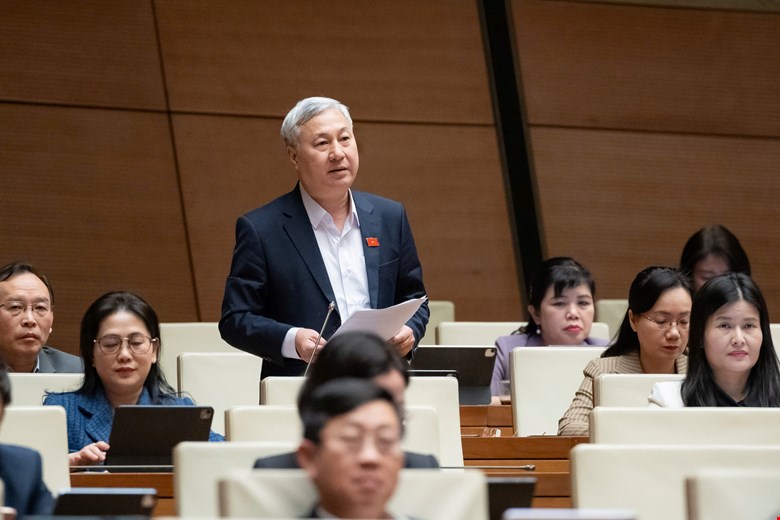Overusing AI reduces the feasibility of the law
On the afternoon of November 27, the National Assembly discussed the draft Law on Artificial Intelligence.
Delegate Pham Trong Nghia (Lang Son delegation) said that, along with opportunities, over-reliance on artificial intelligence (AI) reduces thinking ability and creativity.
According to the delegate, there were scientific opinions worried that if not controlled well, it would lead to the risk of "people turning into machines before machines turn into people".
For the public sector, AI abuse reduces the feasibility, humanity and efficiency of policies and laws. Providing sensitive information and data to AI, if not strictly controlled, can lead to data leakage, causing damage to national security and social order and safety with unpredictable consequences.
"AI is not neutral. AI is a tool of its creator. There are things that users do not know, but developers or technology owners know," the delegate noted.
The delegate pointed out that the abuse of AI can cause public policies to be "verset" to serve the purposes of developers and technology owners.
Therefore, it is proposed to add a provision to the draft law regulating prohibited acts, including the prohibition of AI abuse in the public sector.
Propose that the Government soon issue regulations on responsibilities when using AI in public service and issue an AI ethics framework; build an outstanding mechanism to develop AI in Vietnam.
Design legal and technical needle rings for AI
Delegate Tran Van Lam (Bac Ninh delegation) said that the most worrying thing is not what AI does according to human orders, but what AI can do when it is out of human control.

According to the delegate, the science fiction stories about AI dominating humans are not to threaten, but to remind us that all artificial advances can betray their original goals if not designed on the right moral value foundation from the beginning.
These risks show the urgency of establishing a strong enough legal framework for AI to develop in the right direction and safely for society.
However, to make the law truly complete and have a long-term vision, the delegate proposed a key addition: "Let's consider AI as a newborn human being".
The delegate suggested that the National Assembly add a legal principle to this law: All AI software operating in Vietnam, whether developed by domestic or foreign organizations, must be equipped with a "Stablishment database for standard people".
This database must contain sufficient information to teach AI to understand Vietnamese law; teach AI to ethical standards, culture, good traditions of the nation; teach AI the ability to identify right - wrong, standard - illegal.
Behavior limits must not overcome human risk recognition rules and, most importantly, ensure that the platform's data warehouse always takes an absolute priority in controlling AI behavior; must not be overwhelmed, replaced or disabled by any other algorithm or training data.
The delegate said that this is the legal and technical "needle" to ensure that AI does not deviate.











